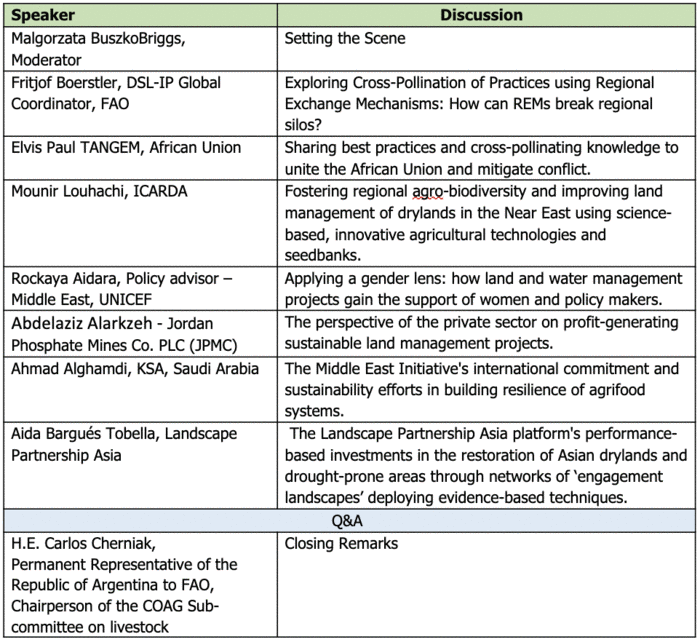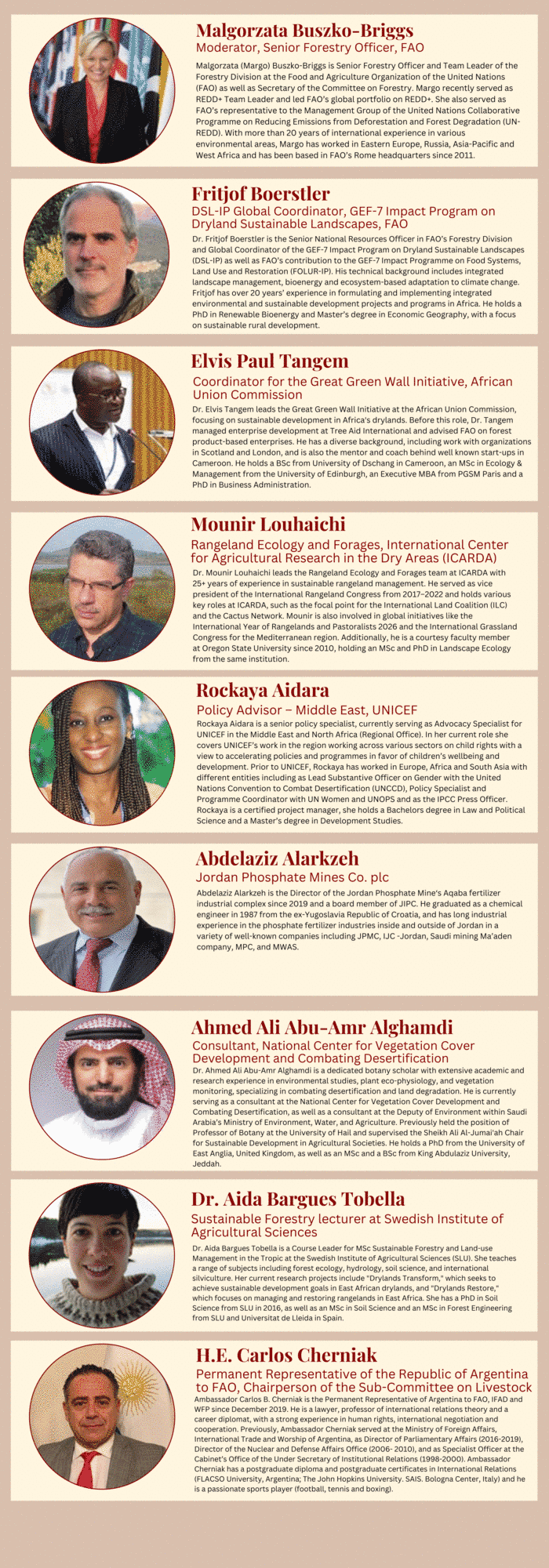Joint in-session seminar with the 26th Session of the Near East Forest and Range Commission
Regional Exchange and Innovation for Integrated Drought Management
Plenary Room
Date: 11th September 2023
Time: 14:00-15:30 Amman time
Between 1982 and 2015, 6 percent of the world’s drylands underwent desertification. Desertification is largely triggered by unsustainable land use techniques, which only further incites anthropogenic climate effects. The combination of these harmful phenomena contributes to deteriorating water supplies, resulting in widespread drought, little rainfall, and therefore biodiversity loss. This is where investing in silvopastoral systems can play a key role in drought management. Silvopastoral systems are vital for the economy, society and the environment, and they contribute to climate change resilience by combating desertification, watershed management, conserving biodiversity, providing feed and habitat for livestock and wildlife, as well as food and employment for local communities.
These systems are also uniquely adaptable to the water scarcity and climatic variability of dryland regions. Thus, addressing natural and human-induced forest-related risks, such as forest fires and pests, and strengthening integrated participatory restoration approaches for forests and rangelands with the full involvement of the local communities is key for enhancing the resilience of countries’ silvopastoral resources while maintaining their integrity.
The in-session seminar will spotlight South-South delivery modalities that play a key role in the transformation of agrifood systems through innovative knowledge and technology that are used to catalyze global trends and are tasked with pairing identified technical gaps.
Panelists will discuss innovative approaches through partnership, private sector engagement, science-based technologies, and traditional knowledge for the sustainability of dryland food production systems (forests and agrosilvopastoral systems) and associated livelihoods in facing drought.

Speakers

